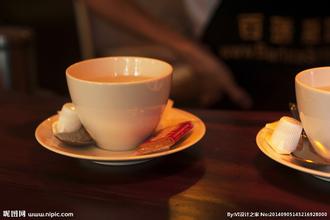Introduction to the characteristics of the grindability of Rwanda Coffee with Sweet Fruit and the description of Flavor in producing area
[product name]: Rwanda bourbon boutique coffee (Rwanda Bourbon Specialty)
[quality rating]: AA
[baking degree]: recommended baking degree city or deep city baking (City Roast or Full City Roast)
[grade]: good
[particles]: ★★ plump
[acidity]: ★★★ micro acid
[equilibrium]: ★★★ stable
[flavor]: soft, strong fragrance, with sweet fruit and wild grass aroma.
[coffee producing areas]: Butale area, southwestern Rwanda (Rwanda Butare)
[planting altitude]: 1200-1800 m
[raw bean variety]: bourbon original (Bourbon Variety)
[raw bean treatment]: washing and refining method
[special]: since the 1920s, Arabica coffee grown in Rwanda has been famous for its unique fruit sweetness and rich grass aroma. In recent years, the Rwandan government has taken positive measures to vigorously promote coffee production, set up coffee production cooperatives in various places, and give technical guidance and financial support to farmers, so that coffee production has made considerable progress.
Rwanda is known as the "country of a thousand hills". It is full of mountains and plateaus, and most areas are tropical plateau climate and savanna climate, which is mild and cool. There are about 33000 hectares of coffee plantations and 500000 people are engaged in the coffee industry. With the good natural conditions of high altitude and fertile volcanic soil, the country's fertile soil and suitable climate contribute to plant growth, and coffee trees seem to be driven or forced to grow upward, or because they grow too fast to produce the best coffee beans. The beautiful country of thousands of hills Rwanda has a long and rich culture for growing highland coffee, mainly high-quality Arabica coffee. Rwanda is the only country in the world that can fully enjoy the harmony between soil, altitude and climate. In this unique growing environment, high-quality coffee from Rwanda has a distinctive taste and aroma.

Important Notice :
前街咖啡 FrontStreet Coffee has moved to new addredd:
FrontStreet Coffee Address: 315,Donghua East Road,GuangZhou
Tel:020 38364473
- Prev

Kenya Coffee Flavor Description Grind Characteristics Variety Producing Area Fine Coffee Bean Taste Introduction
Kenya coffee is mostly grown at altitudes of 1500- 2100 meters and harvested twice a year. To make sure only ripe berries are picked, people have to make about seven rounds through the woods. Kenyan coffee is grown by small farmers who harvest the coffee and send it fresh to a cooperative washing station, where the washed, dried coffee is washed into parchment coffee beans (i.e., coated).
- Next

Colombian Coffee Flavor description Grinding treatment Price characteristics of Fine Coffee
Colombia, located in the northwest of South America, is a beautiful country with a long history. Indians have lived on this land since ancient times. It was colonized by Spain in 1531 and gained independence in 1819. It was renamed in 1886 to commemorate Columbus, the discoverer of the American continent. In 1808, a priest transferred coffee from the French Antilles to Venezuela.
Related
- Detailed explanation of Jadeite planting Land in Panamanian Jadeite Manor introduction to the grading system of Jadeite competitive bidding, Red bid, Green bid and Rose Summer
- Story of Coffee planting in Brenka region of Costa Rica Stonehenge Manor anaerobic heavy honey treatment of flavor mouth
- What's on the barrel of Blue Mountain Coffee beans?
- Can American coffee also pull flowers? How to use hot American style to pull out a good-looking pattern?
- Can you make a cold extract with coffee beans? What is the right proportion for cold-extracted coffee formula?
- Indonesian PWN Gold Mandrine Coffee Origin Features Flavor How to Chong? Mandolin coffee is American.
- A brief introduction to the flavor characteristics of Brazilian yellow bourbon coffee beans
- What is the effect of different water quality on the flavor of cold-extracted coffee? What kind of water is best for brewing coffee?
- Why do you think of Rose Summer whenever you mention Panamanian coffee?
- Introduction to the characteristics of authentic blue mountain coffee bean producing areas? What is the CIB Coffee Authority in Jamaica?

